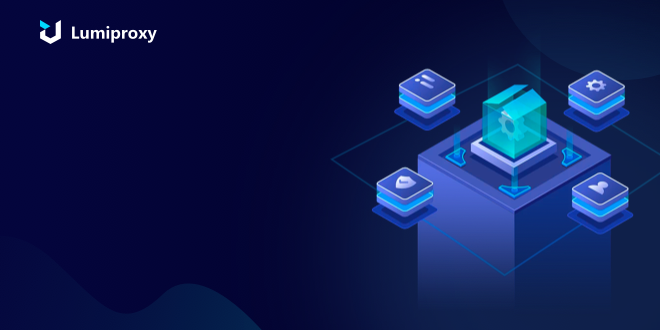In today's information age, the web contains a large amount of valuable data, and crawler technology has become an important tool for obtaining and analyzing this data. However, web crawlers often face a series of problems during execution, such as frequent blocking and data restrictions. To overcome these problems, many developers choose to use proxy IP to improve crawler efficiency and stability. In this article, we will delve into the solution of Python crawler with proxy IP and also analyze the limitations of these methods.

1. Advantages of Python Crawler
Python, as a powerful and flexible programming language, provides a wide range of tools and libraries for crawler development, such as BeautifulSoup, Scrapy, etc. The advantages of Python crawler are reflected in:
a. Simple and easy to use: Python syntax is concise and easy to understand, suitable for beginners to get started, but also provides a wealth of extension capabilities for experienced developers.
b. Diverse library support: Python has many libraries for web crawlers , such as BeautifulSoup for HTML parsing , Scrapy for large-scale crawling , etc., these libraries can greatly simplify the development process .
c. Powerful data processing capabilities: Python has excellent data processing capabilities, you can crawl the data for cleaning, conversion and analysis, for the subsequent data mining provides a convenient way.
2. Role and Advantages of Proxy IP
Proxy IP, as a commonly used means to deal with blocking and restrictions, can effectively improve the efficiency and stability of the crawler. The role of proxy IP is reflected in:
a. Hiding the real IP: Proxy IP can disguise the source IP of the request as other IP addresses to reduce the risk of being blocked by the target website.
b. Break through access restrictions: Some websites will limit the frequency of requests from the same IP in a short period of time, using a proxy IP can bypass these restrictions and achieve a higher frequency of access.
c. Improve stability: Proxy IP can disperse the request traffic and reduce the probability of a single IP being banned, thus improving the stability of the crawler.
3. Limitations of Python crawlers with proxy IP
However, Python crawler and proxy IP can not solve all the crawler problems, they also have some limitations:
a. Anti-Crawler Mechanism Upgrade: With the development of technology, more and more websites adopt more complex anti-crawler strategies, such as CAPTCHA, dynamic loading, etc., which may still bypass the defense of proxy IP.
b. Proxy IP quality varies: the quality of free proxy IP is often unstable, which may lead to request failure, timeout and other problems, while paid proxy IP requires a certain cost.
c. Data Consistency and Accuracy: The use of proxy IP may lead to data inconsistency and loss of accuracy, as different IP accessing the same website may see different content.
d. Legal and Ethical Issues: Some websites may explicitly prohibit the use of proxy IP for access, and violating these rules may involve legal and ethical issues.
4. Integrated solutions
To overcome the limitations of Python crawlers and proxy IP, developers can adopt a comprehensive solution:
a. Intelligent Anti-Crawler Strategies: Developers can explore smarter anti-crawler strategies, such as simulating user behavior, using browser rendering engine, etc., to cope with complex anti-crawler mechanisms.
b. High-quality proxy IP service: Choose a reliable proxy IP service provider and get high-quality proxy IP to ensure stability and efficiency.
c. Data Cleaning and Verification: Clean and verify the crawled data to ensure the accuracy and consistency of the data and provide a reliable basis for subsequent analysis.
d. Legal and ethical compliance: Developers should comply with website rules and laws and regulations to ensure that crawling activities are legal and compliant.
Conclusion
Python crawler and proxy IP are effective tools for solving web crawling problems, but they are not a panacea. They each have certain advantages and limitations, and developers need to comprehensively consider the complexity of the problem and the characteristics of the demand, and take appropriate strategies and measures. In the process of crawling, constantly learning and adapting to new technologies and methods in order to better cope with various challenges and achieve efficient and stable data acquisition and analysis.
























 Deutsch
Deutsch